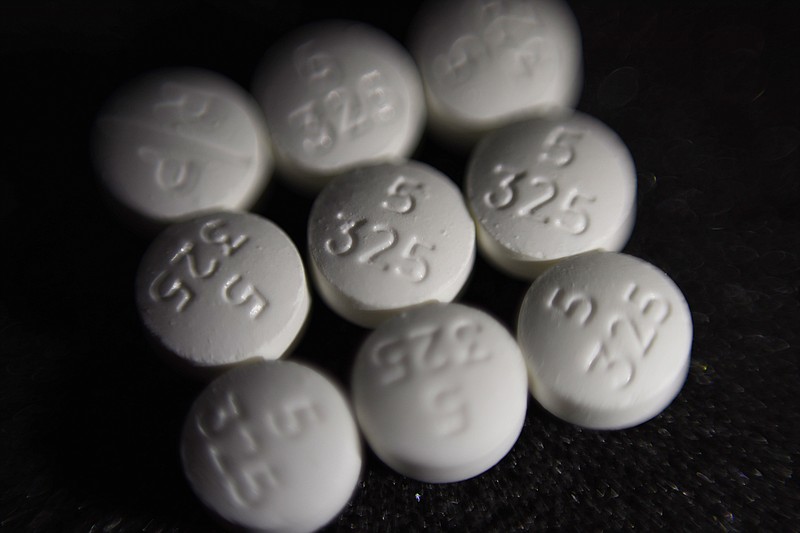Callaway County has joined an agreement with other counties across the country to pursue litigation against opioid manufacturers and distributors.
"Attorneys throughout the country have joined to do this litigation, not against doctors but against Big Pharma because they didn't release information about how addictive opioids are," Presiding County Commissioner Gary Jungermann said Thursday.
The county signed onto an engagement to represent with St. Louis law firm Eccher Law Group, plus several other law firms involved in the suit. The contract suggests "those in the chain of distribution of prescription opiates" are "responsible for the opioid academic which is plaguing Callaway County."
"The background is that there's litigation going on throughout the entire country related to alleged wrongdoing by drug manufacturers and distributors," Attorney John Eccher of Eccher Law Group said. "This group that Callaway County signed up to be represented by has formed a consortium of law firms throughout the country, including a number of law firms that are heavily involved with multi-district litigation involving the allegations."
This legal action should come at no expense to taxpayers, Jungermann said.
"In this thing, in bold print, it says, 'There is no fee if there is no recovery,'" he said. "It also says there won't be expenses if there is no recovery."
Should the legal action be successful and if Callaway County receives a portion of the amount awarded, the law firms will keep 25 percent of the gross amount as a fee (plus an additional amount to cover expenses, not to exceed a total of 50 percent of the gross award).
Jungermann said he's wary of getting the county entangled in litigation, but the severity of the opioid crisis leaves little choice.
"It's a crisis and people are dying from it," he said. "It's going to have to be addressed, to help people get off these drugs, and who's going to pay for it?"
With any luck, that will be the opioids' manufacturers and distributors, whom Jungermann states he suspects pushed the drugs without disclosing how easily people can become addicted. Otherwise, Jungermann fears, the county will have to dip into general revenue to help fund treatment programs.
The litigation is being co-led by Paul Farrell of Greene, Ketchum, Farrell, Bailey & Tweel, a West Virginia personal injury law firm. According to the consortium's website (greeneketchum.com/national-opioid-litigation), Farrell filed initial lawsuits against opioid distributors in 2017 but soon realized the opioid crisis's impacts reached far beyond his state.
This type of legal action is called "multi-district litigation." Eccher described it as similar to a class-action lawsuit.
"There are many common issues related to fact and law between the individuals involved," he explained. "A multi-district litigation is the way for the courts to address those common issues at once rather than having thousands of separate lawsuits going."
The main difference between this and a class-action lawsuit is that each plaintiff receives a different amount of damages if the litigation is successful. The amount received by Callaway County would depend on factors like the prescription rate of opioids in the county (44 prescriptions per 100 residents in 2016, according to the U.S. Centers for Disease Control) and the expense addiction has caused the county.
"We will work hand-in-hand with the county to gather information necessary to attempt to recover as much money for the county as we can," Eccher said. "That will likely include us working with the county to gather data that is public record. We handle the litigation as far as filing the lawsuit, presenting the information and all of that."
So far, 19 Mid-Missouri counties have joined litigation, Eccher said. Boone County commissioners also voting to join Thursday. More than 400 counties and cities in Ohio, Louisiana, Oregon, Maryland, Florida, Kentucky, North Carolina and beyond have joined as well.
"By forming this big group, we've basically tried to put together one heck of a team to represent Callaway County," Eccher said. "I actually lived in Fulton for five years. The opportunity to try to help Callaway County deal with this epidemic is very satisfying to me."
From 2013-17, 16 people died of opioid overdoses in Callaway County, according to the Missouri Department of Health.

